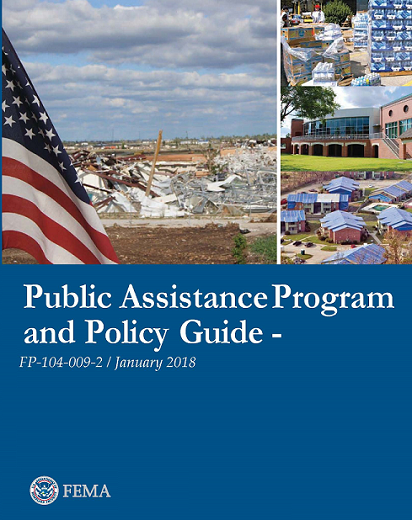
The 2018 PAPPG (V3.0) is effective for
all emergencies and major disasters declared on or after
August 23, 2017. It supersedes the 2017 PAPPG (V2.0) which
is effective for all emergencies and major disasters
declared between April 1, 2017 and August 22, 2017.
DisasterCenter.com is happy to make the
Federal Emergency Management Administration's (FEMA)
Public Assistance Program and Policy Guide (PAPPG) V 3.0
available in a print format.
FEMA Public Assistance (PA) provides
grants to jurisdictions and certain non-profits for the
costs of emergency response and for damages to permanent
facilities damaged as a result of events that qualify for
Presidential Disaster Declarations.
In terms of dollar amounts, FEMA's
Public Assistance Program is the largest grant program
that FEMA operates.
FEMA PA can assist with local and State
governments? emergency response efforts and in the
restoration of public infrastructure after Presidential
disaster declarations in the United States.